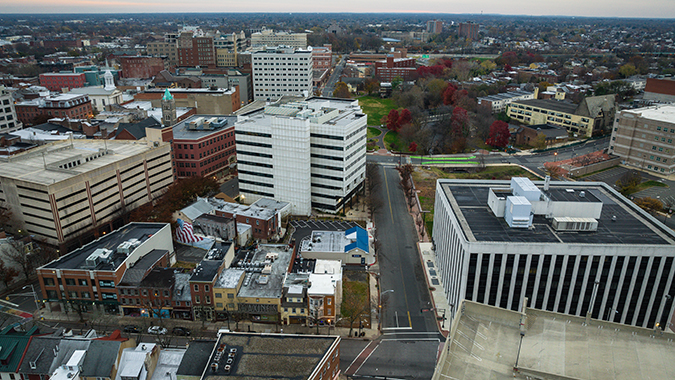NJBIA supported legislation approved by the General Assembly on Monday would extend the accommodations previously given to companies regarding the percentage of time their employees must spend working on site in order for their employers to keep their economic development grants.
Bill A-4046, sponsored by Assemblywoman Eliana Pintor Marin (D-29), impacts companies participating in the Business Employment Incentive Program, the Business Retention and Relocation Assistance Grant Program, the Grow New Jersey Assistance Program, and the Urban Transit Hub Program, each of which is administered by the New Jersey Economic Development Authority (EDA). The employer flexibility that was previously authorized for these grant recipients is due to expire on March 31.
“NJBIA strongly supports this bill as a win-win-win compromise supporting employers that have created jobs and built the facilities they promised, their employees who want greater workplace flexibility in the shift to remote work, and the need to invest in our downtown areas,” NJBIA Chief Government Affairs Officer Christopher Emigholz said.
Economic development incentives provided in the form of tax credits require businesses to meet certain program criteria, including creating or retaining a certain number of jobs at a qualified business facility. For a full-time job to be counted toward satisfying those requirements, full-time employees must spend 60% of their working hours on-site at the business’ location.
In recognition of the hybrid work realities ushered in by the pandemic, the state added greater flexibility to the rules. Under an accommodation that expires on March 31, businesses participating in any of the four NJEDA grant programs could waive the requirement that a full-time worker be on-site 60% of the time if the employee spent at least 10% of their time at the business location and their employer made a payment equal to 5% of its tax credit for 2022 tax period to the NJEDA.
The bill approved by the Assembly by a 64-12 vote on Thursday was amended last week in committee to only allow an accommodation beyond April 1, 2024, for certain businesses if full-time employees spend at least 40% of their work hours on-site and if those businesses make a payment to NJEDA equal to 10% of their tax credit. For businesses in economically distressed areas, the on-site requirement is 50% of hours worked.
The payments received from businesses under this accommodation for partially remote workers must be used by the NJEDA to provide loans, guarantees, equity investments, grants, or other forms of financing to support small business and downtown or commercial corridor activation activities within enhanced areas or government-restricted municipalities.




